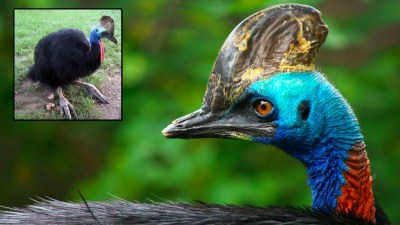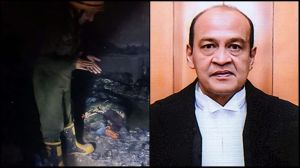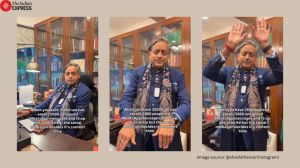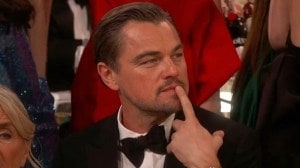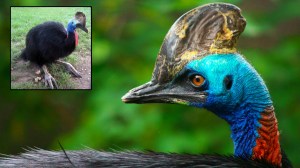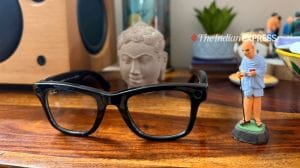Hou Yu-ih, candidate of the more China-leaning Kuomintang (KMT) party, has said that a vote for the China-sceptic Democratic People’s Party (DPP) would be equivalent to “sending everyone out to the battlefield” [against China].

On the other hand, outgoing President Tsai Ing-wen, leader of the DPP, said last week, “Does anyone want war? Nobody does… Look at Hong Kong and think of Taiwan. We don’t want Hong Kong-style peace. We want dignified peace.”
The President has served for two consecutive terms since 2016, and is now ineligible to run under Taiwan’s election rules. Her party has nominated Taiwan’s Vice-President Lai Ching-te, also known as William Lai, as its candidate. Chinese foreign ministry spokesperson Wang Wenbin has said: “Whatever high-sounding rhetoric Taiwan’s Democratic Progressive Party (DPP) authorities try to use, it cannot cover up their malicious attempt to tie Taiwan residents to the war chariot of ‘Taiwan independence’.”
But what do the people of Taiwan think?
First, a recap of Taiwan-China ties.
In the dying years of the 19th century, Taiwan had come under Japanese control. Following the 1911 Xinhai Revolution and the Qing dynasty’s end, the Republic of China (ROC) was proclaimed on the mainland. In 1927, civil war broke out in China between the Kuomintang-led government of the ROC and the communist forces. There was a lull during World War II, but following the defeat of Japan in 1945, the civil war flared up again.
In 1949, the communists took control of the mainland and proclaimed the People’s Republic. The KMT leadership and cadres fled to the island of Taiwan, where they declared the Republic of China.
Both the PRC and ROC initially claimed to be the “real” China. However, international support for recognising Taiwan never really took off. Today, only a handful of small countries recognise Taiwan as a separate country.
Story continues below this ad
The KMT, which ruled in Taiwan continuously until 2000 and then again from 2008-16, supports talks for maintaining peace with China. It also agrees broadly with the idea of ‘One China’, but differs from Beijing, which sees the People’s Republic of China as the only China. It holds that Taiwan, Hong Kong, Tibet and other regions are a part of it.
The DPP, which ruled from 2000 to 2008 and has been in power since 2016, maintains cautious relations with Beijing. Its presidential candidate William Lai has said: “I would like to reiterate that Taiwan is already an independent and sovereign nation, and thus we do not have a need to further declare Taiwan independence.”
Concerns have been raised over China’s aggressive stance, possibly escalating to an invasion. In 2022, Chinese President Xi Jinping expressed a commitment to resolving the “Taiwan issue” by using force if necessary.
The United States has affirmed its support for Taiwan, with which it has informal ties. In September 2022, US President Joe Biden was asked in an interview to clarify if US forces would defend Taiwan in the event of a Chinese invasion. Biden replied, “Yes.”
Story continues below this ad
And how do the Taiwanese view China?
A survey of 1,211 Taiwanese people was recently conducted by the academic institution Academia Sinica’s Institute of Sociology in Taiwan, on attitudes towards China and the US. It was the third such annual survey of its kind.
Hsin-Hsin Pan, who is an Assistant Professor of Sociology at Soochow University in Taipei, and was also involved in the survey, said a trend of declining positive attitudes towards China had been witnessed in the survey. This same trend was noted in other surveys too.
“This is the trend in the institute’s China Impact Surveys… The survey question is if you agree that the mainland China government is a friend to Taiwan. Blue bars mean ‘% of agree’ and red bars mean ‘% of disagree’”, Prof Pan told The Indian Express in an email. The jump in the red bar from 2019 onward reflected the opinion of people toward “China’s suppression of Hong Kong”, she said.
 Survey on attitudes on China. (Graph shared by Prof Pan)
Survey on attitudes on China. (Graph shared by Prof Pan)
So what happened in Hong Kong?
Since 1997, Hong Kong has operated under the ‘One country, two systems’ framework following its handover from the UK to China. Initially allowing Hong Kong to maintain its capitalist and more liberal system, recent years have witnessed China’s attempts to influence various aspects, from elections to law and order, through the introduction of specific laws.
Story continues below this ad
The backlash and protests that began in 2014 met with subsequent crackdowns. They heightened the perception that the ‘two systems’ promise was being eroded. In 2019, anti-government and anti-China protests intensified, triggered by an extradition law allowing Hong Kong’s government to entertain requests from any country. It was feared to be a tool that could be misused against anti-China activists in Hong Kong.
Prof Pan said the suppression of Hong Kong resonates strongly in the minds of the Taiwanese people, alongside other issues such as human rights allegations in Xinjiang and Tibet, military threats, flybys near Taiwan, and China’s assertive wolf warrior diplomacy. All these factors contributed to the sliding of positive views of China, she said: “Distrust is a natural result.”
How do the Taiwanese view the US, and the question of independence?
Around 91 per cent of people said they preferred the status quo, rather than either unification with China or a move towards independence. This outcome too, is consistent with the outcomes of other surveys.
“Status quo is a red line drawn by the United States and China to sustain regional stability. A majority of Taiwanese support it because they would like to keep democracy and peace at the same time, or at the very least, peace,” Prof Hsin-Hsin Pan said.
Story continues below this ad
While the US is seen as a partner that can lend military support, on some other issues, there is apprehension: 33.9 per cent of the people in the survey agreed that it was a trustworthy country, while 55.3 per cent disagreed.
According to the researchers, this has to do in part with the situation in Ukraine. “Taiwanese see what might have happened to us by referencing what the US government has done to Ukraine, a frontline to a legacy rival to the US (Russia). The US government does not send troops to help defend Ukraine,” Prof Pan said. However, nearly 60 per cent of people still deem the US security commitment as credible.
Respondents were asked whether Taiwan’s status as the world’s foremost semiconductor manufacturer would help it secure US intervention in case of an attack. Semiconductors are used in most devices that power essential modern technology today – laptops, smartphones, cars, etc.
KMT supporters were more likely to think that US support may not be assured to Taiwan if other sources of chip manufacturing come up.
Story continues below this ad
“On the political spectrum of China policy where the right is pro-China and the left is anti-China, KMT is more on the right, and DPP is more on the left. They both try to get close to the middle, where a majority supports status quo. Due to KMT’s pro-China policy, its supporters are likely to buy into China’s narratives that US support may not be assured if it finds other sources of chip manufacturing,” Prof Pan said.
However, on the question of defining oneself in terms of identity – Chinese, Taiwanese or both – the response was clear. The survey says that 62.5 per cent of people considered themselves Taiwanese, 2.3 per cent Chinese, and 32.2 as both.
It follows, then, that a Taiwanese identity is agreed upon, irrespective of party affiliations. But more than discussions on identity, “security threat and China policy” will be the key issues in the elections. “KMT and DPP both claim to resume negotiations with China where the former would like to accept a pre-condition of ‘One China’ with different interpretations, and the latter would not accept any such pre-condition,” she added.

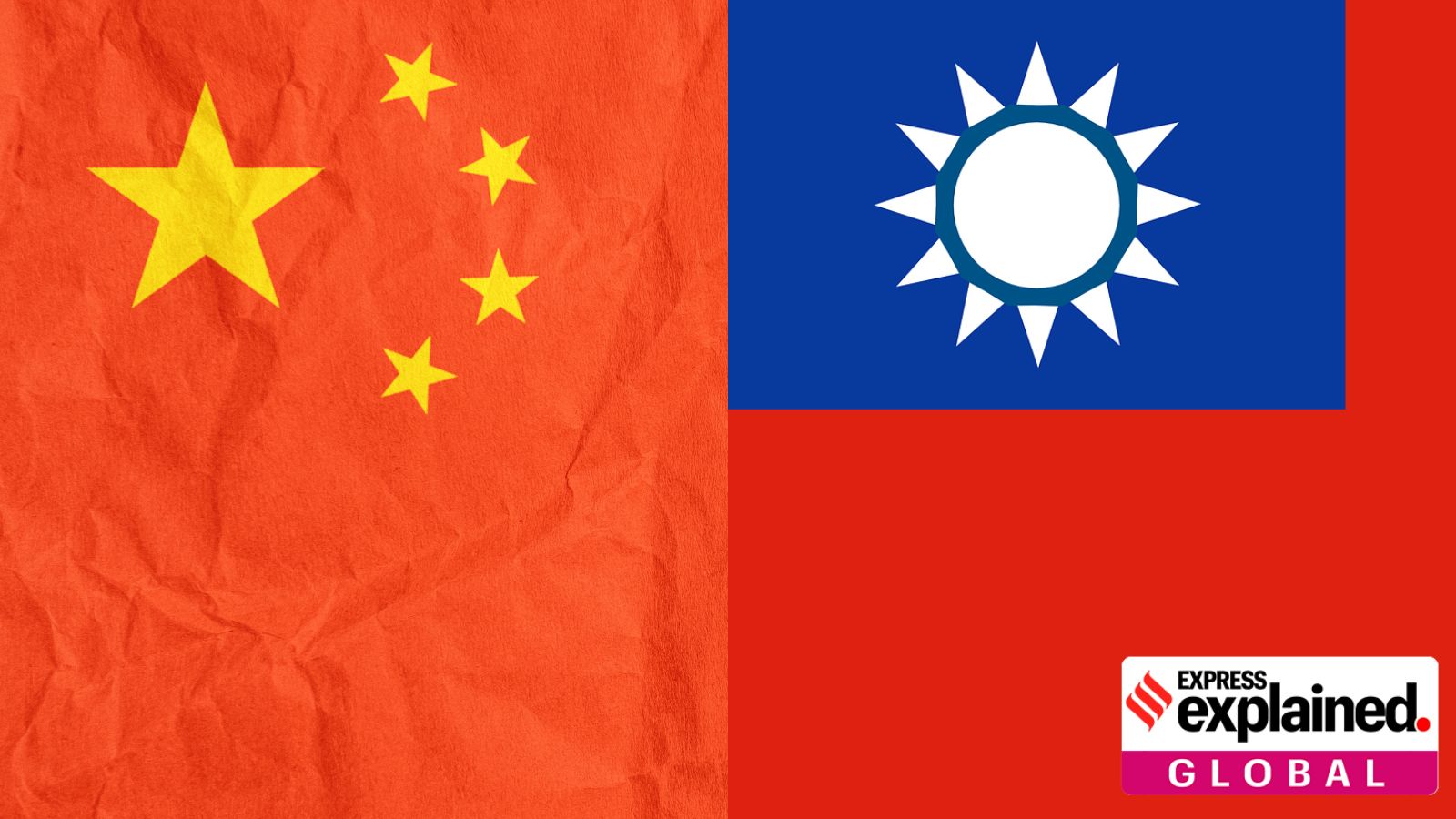

 Survey on attitudes on China. (Graph shared by Prof Pan)
Survey on attitudes on China. (Graph shared by Prof Pan)
